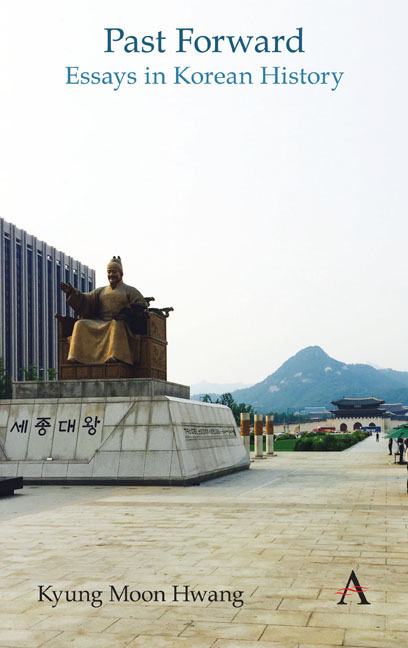Book contents
- Frontmatter
- Contents
- List of Figures
- Foreword
- Chronologies of Korean History
- Themes
- Acknowledgments
- Note on Romanization and Spelling
- Part I Circulating History
- Part II Durable Traditions
- Part III Ancient Remains
- Part IV Dynastic Depths
- Part V Modern Origins
- Part VI Challenges of Nationhood
- Part VII History Makers
- Part VIII External Presences
- Part IX Trials of Modernization
- Part X Gripped by the Past
- 70 Natural Disasters and the False Wisdom of the Past
- 71 Royal Dangers
- 72 North Korea's Alternative History
- 73 Origins of Korea's Political Corruption
- 74 Anti-Communism's Powerful Hold
- 75 Fraudulent Captains of the Sewol Ferry Disaster
- 76 Overcoming Past Hierarchies
- 77 Gripped by the Authoritarian Mindset
- 78 Ways of Living History
- Index
76 - Overcoming Past Hierarchies
from Part X - Gripped by the Past
- Frontmatter
- Contents
- List of Figures
- Foreword
- Chronologies of Korean History
- Themes
- Acknowledgments
- Note on Romanization and Spelling
- Part I Circulating History
- Part II Durable Traditions
- Part III Ancient Remains
- Part IV Dynastic Depths
- Part V Modern Origins
- Part VI Challenges of Nationhood
- Part VII History Makers
- Part VIII External Presences
- Part IX Trials of Modernization
- Part X Gripped by the Past
- 70 Natural Disasters and the False Wisdom of the Past
- 71 Royal Dangers
- 72 North Korea's Alternative History
- 73 Origins of Korea's Political Corruption
- 74 Anti-Communism's Powerful Hold
- 75 Fraudulent Captains of the Sewol Ferry Disaster
- 76 Overcoming Past Hierarchies
- 77 Gripped by the Authoritarian Mindset
- 78 Ways of Living History
- Index
Summary
As someone whose profession depends on the spread of knowledge and understanding, I rarely advocate the suppression of information. Still, one cannot but feel somewhat uneasy with the periodic “outings” of pro-Japanese figures from Korea's colonial period (1910–1945), because such exercises seem to have a punitive quality to them.
On the one hand, there is much value to shining a light on the ways Koreans collaborated with the Japanese occupation regime. As these campaigns allege, collaborators often took advantage of, or otherwise benefited from, the severely discriminatory means of foreign rule, and as a matter of historical record they should be known.
On the other hand, these “collaborators” mostly did not participate in the excesses of the colonial regime, much of which took place over the colonial period's closing half-decade, when Koreans were mobilized for the Pacific War. The majority of these “pro-Japanese” Koreans did not kidnap, coerce, or trick their compatriots into forced labor or the “comfort stations” of sexual slavery, for example, or torture political prisoners, or work to destroy Korean nationhood in order to enforce loyalty to Japan.
Most Korean government officials, businessmen, and others who benefited from or even joined the colonial system simply tried to do the best they could for themselves and their families. That they failed to actively resist Japanese rule does not necessarily mean that they committed treason, or any crime for that matter.
The problem with this more sympathetic view, however, is that the unjust hierarchies of the colonial regime remained, in many ways, the basis for the inequalities of South Korean society, indeed all the way to the present day. The descendants of those who benefited from colonial rule built upon their inherited privileges, often by colluding with the structures of severe exploitation and discrimination in the succeeding South Korean dictatorships. And now, these people's descendants, who remain largely ignorant of or disregard this painful history of unjust inequalities, not only occupy political and social positions of power but fight against efforts to bring about greater fairness in society.
And not surprisingly, many of them also insist on covering up or distorting the more uncomfortable aspects of their nation's history. They like to believe that somehow their privileged standing today resulted from only their forebears’ hard work or other legitimate gains.
- Type
- Chapter
- Information
- Past ForwardEssays in Korean History, pp. 219 - 220Publisher: Anthem PressPrint publication year: 2019



